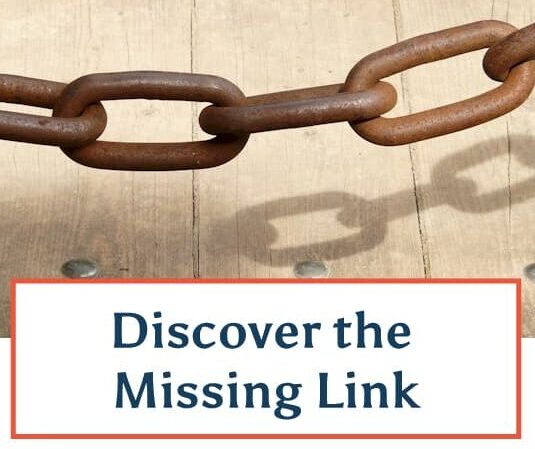My client Mary called me and cried, “I need to find my niche!”
She had been told, repeatedly, that she needed to find a narrow niche for her Executive Coaching business so that she could be more noticeable. There is a pack of coaches who market themselves to business professionals, managers, and C-suite executives. How can she be unique and claim her niche?
But she had also been told that using words like “meaning” and “purpose” to describe what clients were looking for was over-used; all coaches were using those terms and they had lost their power when it came to writing marketing text.
To find your niche, you need a tailor-made approach.
Here is my reply to Mary in regards to identifying her niche and writing her marketing text towards that niche:
Finding the right words
When you’re trying to describe the work you do, who your audience is, and how you’re unique/different from all the other coaches, don’t avoid words that you think are over-used.
Remember, within the coaching industry, words like meaning, fulfillment, and work/life balance are used constantly. As coaches, we’re used to hearing them and don’t think they’re unique enough.
But, outside of the coaching industry, people are just awakening to these words. They love these words. And people ARE looking for meaning and fulfillment in their lives.
Just because you are used to seeing those words every day doesn’t automatically make them powerless or boring. You can still be unique, and use the words that are common in your industry.
You may be tired of hearing catch-words in your industry, but that doesn’t mean that customers aren’t still searching for those very same ideas.
If you want to know if people are interested in these words, go to a keyword tool and type them in. You’ll see for yourself how popular they really are.
As a coach, saying you don’t want to market yourself using the words like fulfillment” and “meaning,” is like saying you’re a dentist, but you don’t want to have the niche of “filling cavities” because every dentist does that so it’s not unique enough.
Sometimes your niche isn’t just which topics you talk about with clients; sometimes your unique niche is the combination of what topics you talk about AND the people/groups you talk to.
Finding the right niche…but not too tight of a niche
The whole purpose of choosing a niche is so you can find a central place where potential clients congregate — so that you can get in front of them to introduce your business via your marketing techniques.
You can find “professionals” or “mid-level managers” or “upper-level executives” in specific industry associations, magazines, websites, newspapers, peer groups, conferences, etc.
One client told me he wanted to be known as the Hyper Ambitious Stress Coach. Okay, you want your niche audience to be “hyper-ambitious executives who are under a great deal of stress.” One problem: there is no industry association or conference for Hyper-Ambitious people…how will you locate them?
Do people really type in “hyper-ambitious stress coach” into Google when they’re looking for help? It implies that you work with only people who are hyper-ambitious, and only stressed ones at that. There are plenty of “non-hyper-ambitious” professionals who are want to achieve great things and be successful (and are stressed), they just don’t go overboard into “hyper” behaviors that create unbalance.
One caveat: labeling yourself the “Hyper Ambitious Stress Coach” is great for PR. The news media loves a specialist. But clients may not be looking for a Hyper Ambitious Stress Coach; they’re just looking for help with stress, over-scheduling, high demands, etc. So unless you’re going to get all your prospective clients via news media interviews, you might want to re-think that narrow niche or label yourself that way.
Choosing a niche is not an exercise in finding a place where you have no competition. It’s okay if you have competition in your niche: it shows there’s a thriving market there.
Differentiation vs. Niche
If you’re simply looking to differentiate yourself from your competition, then that’s not done by choosing a niche market. Differentiation and Niche are two separate marketing steps. You can differentiate (brand) yourself based on:
- your personality
- your processes
- your techniques
- your classes and products
- your background
- your experience
- your skill set & knowledge
- your availability
- your fees
- your style
Differentiation asks, “Why would they buy from ME versus my competition?”
Niche asks, “Where will I find THEM so I can introduce myself?”
This entry in Wikipedia may help:
I’m not saying, “Don’t go in that niche direction.” What I am saying is this: if you define your niche too narrowly, you’ll have a hard time getting in front of them with your marketing techniques. And along the way, you might not be following your own purpose or meeting your goals.
So, how do you define your own niche?

 What Should Your Service Fees Be?
What Should Your Service Fees Be?

Hi Karyn,
Another great way to niche yourself down is by location. So instead of being “nighttime plumber” you become “london nighttime plumber” you will also find plenty more qualified leads in your area as a result!
Just a thought!
Cheers
Jesse
For anyone looking for specific associations where your target market congregates, you can search The Encyclopedia of Associations, found at your local library. It is often available by using your library card barcode and accessing the database from your home computer.
I recommend this resource to all my clients who are looking for networking events in their region where their target market will be attending meetings, etc.
–Maria Semple, The Prospect Finder
This is a great resource, Maria. And if your library doesn’t have The Encyclopedia of Associations, they may have the National Trade and Professional Associations book.
One other suggestion regarding your Hyper Ambition Stress Coach niche. While someone may not want to say this is what they do, they can still choose to work with hyper, ambition, stressed out people. How you portray what you do is just as important as choosing your niche.
While your niche may use certain words that have meaning for you the business owner, your title and your message that you send out to your market should use words that convey the “benefits” you provide to the people within that niche.
ie. I help energetic and busy people to overcome their feelings of overwhelm and stress.
That’s a great point, Kim. And when you’re out giving speeches, teaching classes, writing about your topic, or networking, tell stories of clients who were hyper-ambitious and stressed and how coaching helped them. You can put a lot into your marketing messages through stories.
Karyn,
Great, clear advice on find your way to your market AND doing what you feel is right for you to be doing.
The whole “niche” debate is a tricky one — it seems to be that it’s tough to start out, with little experience, nailing your niche.
My tack has been to do what I love (coaching, writing) with people I like working with, and see what keeps them up at night.
Playing with it has been a good process for me to see what I like, what I don’t like, and what sells.
Thanks for the advice 🙂
Laurie
Laurie, that’s exactly how I started my coaching business. Waaaaay before I was a small business coach, I was a life coach. Over a five year period, I realized that who I was really attracting to my business were self-employed small business owners, and that not only did they want coaching, they wanted advice/consulting/mentoring as well. So in 2001, I narrowed my niche to work with only the self-employed. Looking for trends of who is coming to you will help to define your niche.
We have been promoting niche-ing for so long that it’s funny we are now warning against hyper – niching. It is wise to seek out a coach who is an expert at niching (like you) to get the right mix of niche and differentiation.
Great article.
I agree, Lee. Sometimes we create niches that are so tiny and narrow that there simply isn’t enough business there. But imagine having five tiny, narrow niches and serving them well. What a great business that could be, if done right! (You might need five mini-websites, but that’s doable.)
Kary:
Great article and I understand you client Mary’s dilemna. I to have been bombarded with creating a niche and categorizing my services. I honestly gave it some thought and came up with two categories. I believe these two categories will differentiate me from everyone else. Since my two categories of services can be marketed to any of my target audience and target market, I kept asking why do I need a niche? I am not in favor of having one. I am currently rewriting my website content to reflect the two categories of services I have decided upon.
Michelle
I believe, Michelle, that we can serve more than one niche. But it may be that we need to master ONE first, then when that’s on track, add another.